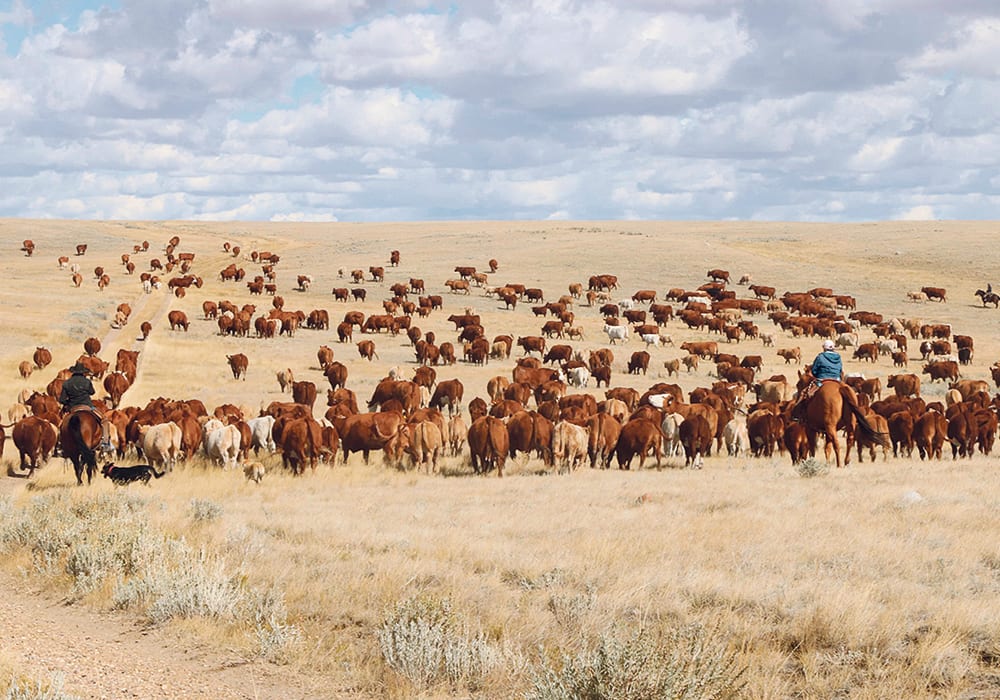Which of the following messages is likely to be met with more acceptance and a greater likelihood of follow through resulting in positive change for the environment?
- People need to slash their consumption of meat and dairy to slow the production of greenhouse gases.
- A dividend of hundreds of millions of dollars in lower costs and higher profits for cattle producers is potentially available from new genetic testing that will produce cattle herds that convert feed more efficiently and produce less methane.
I think more people would choose the second message and would even happily contribute to the research if it meant they could continue to enjoy the taste of meat.
Read Also

Huge Black Sea flax crop to provide stiff competition
Russia and Kazakhstan harvested huge flax crops and will be providing stiff competition in China and the EU.
I thought about this as I read the summary of the latest report from the Intergovernmental Panel on Climate Change. The report increased the urgency of its warnings. It said the negative climate effects from rising greenhouse gas production are being felt sooner than expected and the damage from each half degree of warming threatens to be greater than previously expected.
The previous goal of limiting global temperature increases to 2 F above the pre-industrial level is now seen as inadequate. It says the goal should be limited to a 1.5 F increase to avoid unacceptable damage to human societies and the flora and fauna of the world.
Cutting greenhouse gas production enough to hit a 1.5 F target would require a massive and quick transformation.
The IPCC report sets out the sobering science. Our success in responding to the danger will depend on public acceptance.
This news is alarming for the average person, but it also generates apathy because it is difficult to comprehend how to undertake the task without incurring unbearable costs.
One of the costs few would bear willingly is to transform their diet, but that is what another study recently published in the journal Nature proposes.
It argues that people in the developed countries of the western world should cut their meat intake by 90 percent. That’s because the calories and protein we get from meat require vastly more energy, land and water to produce than the same amount of plant protein. Also the methane produced by cattle is a greenhouse gas with an impact 40 times worse than carbon dioxide.
The IPCC does not go this far. It suggests that promotion of healthy diets could lower meat consumption in North America. I agree. It would not be an unreasonable task to get Canadians and Americans, where annual per capita beef and veal consumption is 18.4 and 25.8 kilograms, respectively, to decline to the European Union average of 11 kg.
However, the IPCC recognizes the difficulty in going much farther.
“There … remains limited evidence of effective policy interventions to achieve such large-scale shifts in dietary choices, and prevailing trends are for increasing rather than decreasing demand for livestock products at a global scale,” it said.
So greater benefits could come from efforts to lower the environmental footprint of livestock production.
For example, Genome Canada, the University of Alberta and others are studying how to genetically select for cattle that are the best in converting feed to meat and milk and that therefore produce less methane waste.
Once the genetic characteristics of efficient feed converters are identified, then animals with those characteristics can play an important role in breeding programs, leading to herds that are more efficient, cheaper to manage and less damaging to the environment.
A story in this newspaper last year quoted Erasmus Okine, beef research scientist and vice-president of research at the University of Lethbridge, as saying that in Alberta alone, if 30 percent of cattle producers achieved a five percent improvement in their animals’ feed efficiency, it would save about $100 million a year.
Talk about a win-win-win result.
As greenhouse gas is sharply reduced, producers see a financial benefit and we get to continue to enjoy the taste of meat.
We have many tools to solve our greenhouse gas problems, including genetics, new ways to generate renewable energy, large data analysis and machine learning. They have the potential to address climate change and at the same time expand our horizons and make lives better.
People will rally to them and their promise of future prosperity far more readily than calls to tighten their belts and live smaller lives.

















